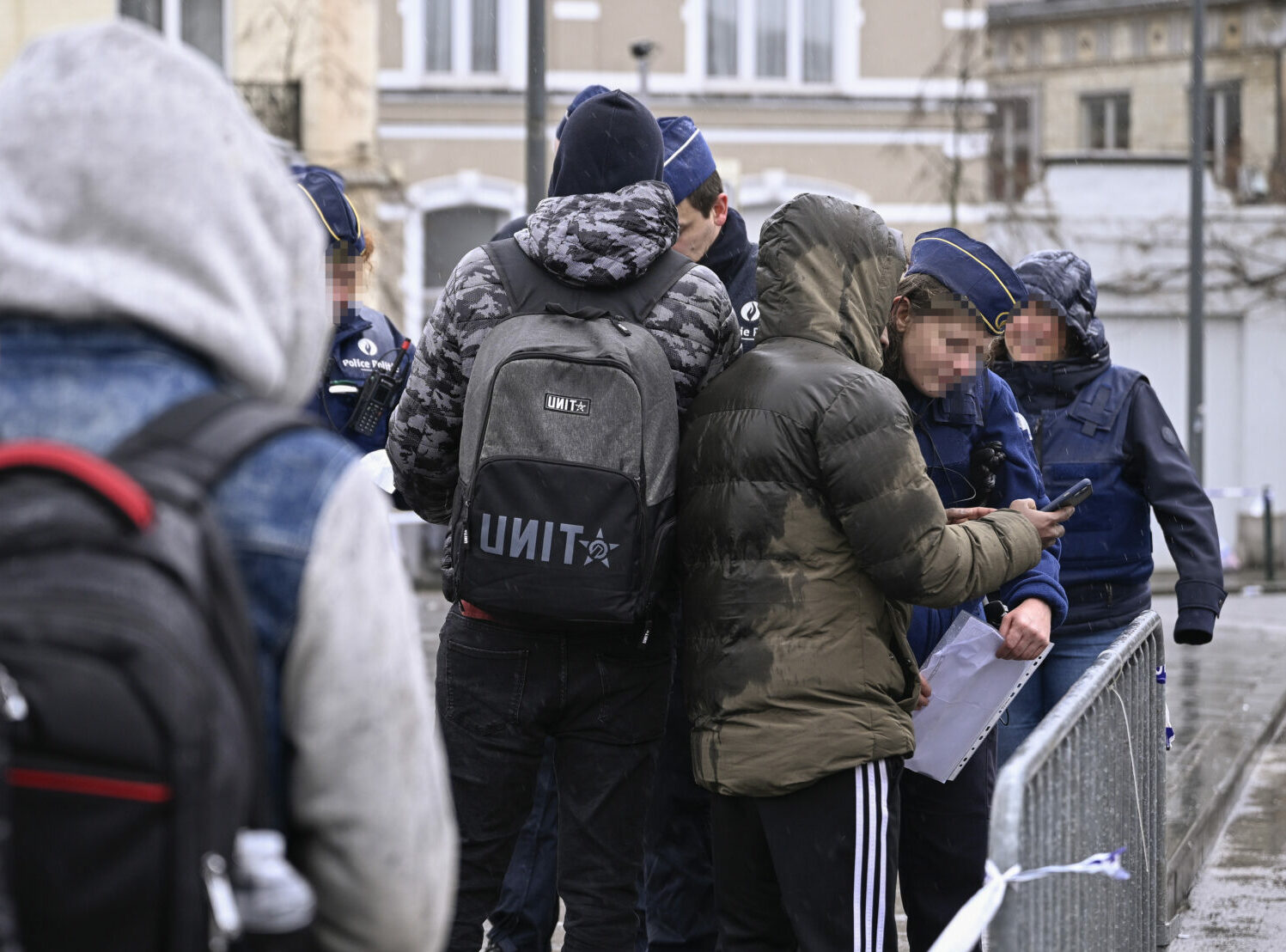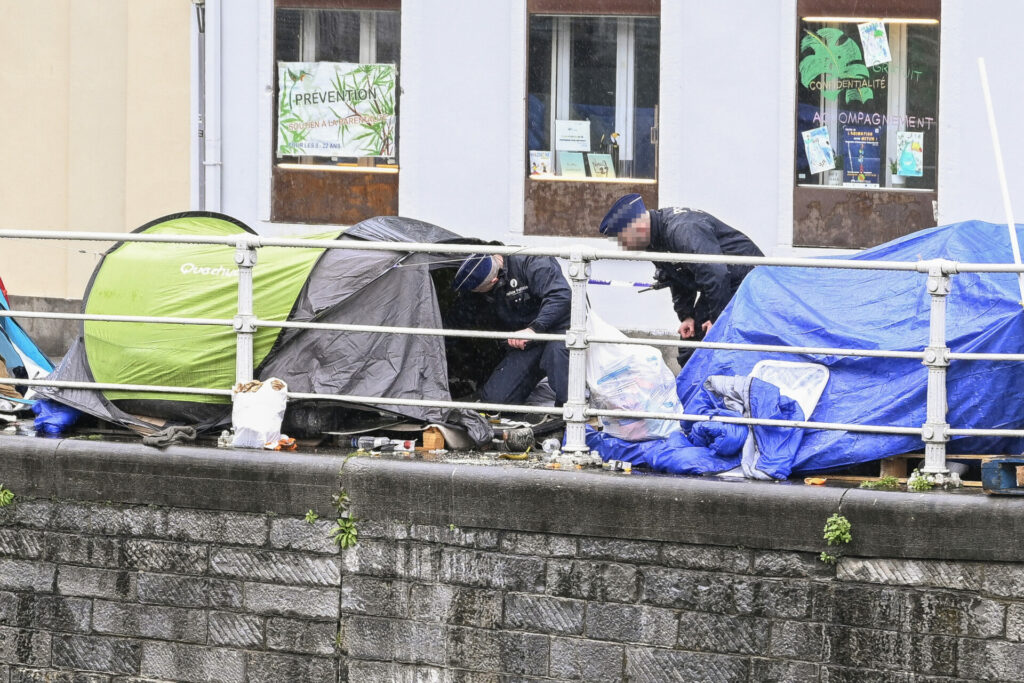The large number of asylum seekers who were evacuated from the canal in Molenbeek, where they had been sleeping rough for months, will be given a sheltered place. However, the crisis continues as thousands more remain on the streets.
Since mid-February, the line of tents and makeshift shelters spread down the edge of quays in Molenbeek near Belgium's Asylum agency Fedasil's registration centre Petit Château has been growing.
On Tuesday, they were unexpectedly evacuated for rehousing, an operation spurred by the growing concern for people's safety and health concerns. A total of 168 people were moved to temporary accommodation, of which 141 asylum seekers were evacuated during Tuesday's operation and were medically screened.
Three people who were suspected of having TB were referred to hospital, while nine others were diagnosed. A total of 56 pathologies were identified, of which 12 were severe, Molenbeek's mayor Catherine Moureaux confirmed during a press conference.
While the management of the reception crisis is a Federal competency, the operation and the medical screening that followed it were managed by the municipality of Molenbeek, however, State Secretary for Asylum and Migration Nicole de Moor spoke out about the matter on Wednesday.
She confirmed that the evacuated people will get shelter in a Fedasil reception centre, which they have been entitled to since they applied for asylum, but initially did not receive, resulting in them sleeping rough.
Ongoing process
De Moor noted in a press statement that she was working with various partners to "provide a solution to the harrowing situation in which the people were staying," adding that in the coming days, the people staying in tents will be transferred to reception centres which are responsible for the care of asylum seekers.
"In an initial move, 40 people were integrated into Fedasil's network and another 40 will be taken over tomorrow (Wednesday)," she noted. All others will temporarily be housed in emergency shelters provided by the region and the municipality.

Asylum seekers who are legally entitled to shelter were sleeping in tents instead. Credit: Belga/ Laurie Dieffembacq
"Those entitled to shelter will be integrated into the Fedasil network. Those not entitled to shelter will be directed to the homeless shelter through the Brussels Region. The registration of people is in progress," de Moor added.
A smaller group of 27 people who were not present during the evacuation will also be resettled. A lawyers' collective was able to prove for them that they too were regularly staying on the bridge, and they will be given a place in the Fedasil network early next week.
Crisis not over
While what was the most visible example of the impact of the reception crisis has now been solved on a local level, the crisis is far from over, a fact that was pointed out by de Moor, locals in Molenbeek and various civil society organisations.
There are still 2,400 asylum seekers on the waiting list to be given a sheltered place in the Fedasil network, many of whom are living on the streets.
One Molenbeek local, Katrijn Dehantschutter, told The Brussels Times that people are still arriving at the canal, most of whom were sent away by Fedasil on Tuesday after the evacuation. She added that others are wandering the streets looking for a place to stay.
Related News
- Asylum seekers at Brussels canal evacuated and to be rehoused
- Fedasil penalty payments for Belgium's reception crisis amount to €278.5 million
"The problem has been tackled locally, but the overarching problem is not gone, quite the opposite," Dehantschutter noted. "I worry about the fact that the most visible aspect of the crisis has now been solved, as the Federal Government may now think the problem is over."
De Moor has also stressed, as she has done for a long time, that structural solutions are needed to bring the reception crisis under control. She will once again meet with the core cabinet to discuss possible options.
Thomas Willekens of Vluchtelingenwerk Vlaanderen, meanwhile, has argued that short-term solutions are needed more urgently to get everyone with a right to shelter off the streets. "The current approach is simply inadequate," he concluded.

